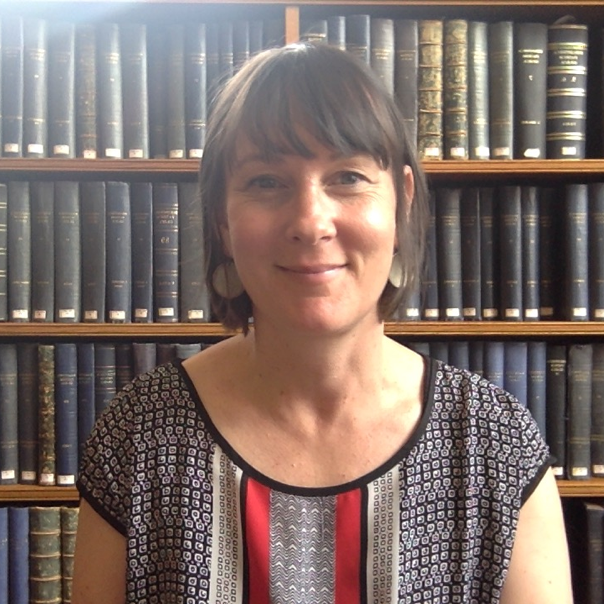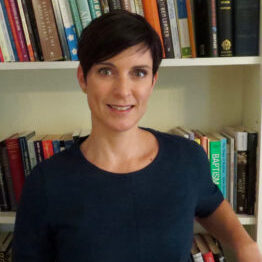Episode Transcript
[00:00:05] Speaker A: You're listening to by the well, a lectionary based podcast, preachers recorded on the land of the Wurundjeri people.
Hello, I'm Robyn Whittaker.
[00:00:18] Speaker B: And I'm Howard Wallace.
[00:00:20] Speaker A: And we are talking about the readings for Pentecost week eleven. And Howard and I are going to talk about two Samuel 1126 through to 1213, psalm 51 112. We might add some verses, and John 624 to 35, in that order. And just a warning for those of you listening and perhaps where there are little ears around. We're in the David and Bathsheba story, and we will be talking about questions of sexual violence and abuse. So just a trigger warning there.
Howard, we started this conversation for last Sunday, and, you know where we got the first bit of the David and Bathsheba story, and we talked a lot about abuse of power. Where are we now in the story? Can you give us some context to pick this back up?
[00:01:13] Speaker B: Yes. The lectionary actually misses about quite a number of verses within chapter eleven. It jumps across to verse 26, which is the second last verse of the chapter.
So about ten or so verses. But those verses initially really tell the story of how David's plan about Uriah being killed is executed, is carried out. So it's really sort of repeating what the plan was and portraying it as being affected in that context. And so we pick up the story now after Uriah has been killed and the bathsheba, his wife, finds out about that. And it's interesting to note right at the very beginning, verse 26 of chapter eleven, she is still called the wife of Uriah, not Bathsheba.
[00:02:16] Speaker A: Yes.
[00:02:17] Speaker B: So we know right at the start. Oh, you know, the. The problem is continuing, at least for David, in that sort of context.
[00:02:27] Speaker A: Yes. She's being defined by the man she rightfully is with, not married.
[00:02:32] Speaker B: Yeah. But it's also underlining that point that David's done wrong here.
[00:02:36] Speaker A: Yes. Because she's Uriah's wife. Yes.
[00:02:38] Speaker B: Not his.
[00:02:40] Speaker A: And, I mean, it's a very dramatic couple of verses there to get us into this next phase of the story. Right. She keens over in the alter translation and then has this period of mourning, which I believe was only seven days. So this is all very quick.
[00:02:55] Speaker B: Yes.
[00:02:56] Speaker A: And then David takes her as a wife. And we should note that that's not, you know, David has many wives. He's already got wives. So it's like taking her into his harem. Harem, effectively.
[00:03:09] Speaker B: Although, as we'll see later on when we get to the books of kings, you know, she does become a prominent.
[00:03:15] Speaker A: Yes, yes.
[00:03:17] Speaker B: The other point, that here is only a tiny little point. When the wife of Uriah heard of it, that her husband was dead, she made lamentation for him. And when the morning was over, she sent him. Brought. Sorry, he sent. David, sent and brought her to his house. I mean, if you go back, I mean, he took her originally while she was still purifying herself. So there's a sense now in which they've waited, you know, or she's waited until an appropriate period of time passes, whereas originally that wasn't the case.
[00:03:54] Speaker A: Yeah. Yeah. We might be surprised. David is respecting that, but maybe it's. Yes.
[00:03:59] Speaker B: So we move on to retribution, if you like to call it that, when God sends Nathan the prophet to condemn David in that context.
[00:04:12] Speaker A: Yes. And before we get into that, the key verse, I think, is that lead up to that verse 27. And I'm reading here alter's translation because I do not like what the NRSV says, which is this displeased God.
The more literal rendering of the Hebrew is that what David had done was evil in the eyes of the Lord. One of my questions, Howard, we might circle back to, is which thing is the evil thing?
[00:04:40] Speaker B: Which thing?
[00:04:41] Speaker A: Yeah. Like, is it the whole thing? Is it the way he treated Bathsheba? Is it the killing of a man?
I wonder what the writers thought was particularly evil. But anyway, we'll come to that.
[00:04:53] Speaker B: Personally, I think it's the whole thing.
[00:04:54] Speaker A: Yes, I think that's probably true, but, yeah. Talk to us about Nathan.
[00:04:58] Speaker B: Well, Nathan is one of a couple of significant prophets in David's court, and he really sort of stars in this story, in this part here, he comes to David and lays out his message in a small parable, we might call it, tells a story about two men, one who has a small.
We would almost call it a pet sheep within his house. Little ewe, a female, no doubt, just to underline the point in the end.
Little ewe lamb. Yes. Then a rich man has a visitor and wishes to supply some hospitality, but doesn't want to take anything from his own flock, and so takes the small lamb from the poor man's flock. Well, his household, his only animal.
And, of course, David is irate at this.
[00:06:08] Speaker A: Yes. He's angry.
[00:06:10] Speaker B: Yes. Which is an interesting sort of point, I think, being made by the text, he can get upset and justice sort of comes to the fore. But then, of course, he's condemning himself.
[00:06:25] Speaker A: Yes. He can recognise the injustice in the story when presented to him in this way.
[00:06:31] Speaker B: Yes, he does that quite fully. Anyway, Nathan's parable sort of highlights this sort of sense of injustice for David, and this only condemns him further. And we again notice that just a few simple words turn the whole story on before we had Bathsheba's message, I am pregnant, which changed the dynamic of the story. Here we have NAthan's pointing out after David gets a bit irate about the injustice of this story.
You are the man.
[00:07:08] Speaker A: You are the man. Yep.
[00:07:09] Speaker B: And then all that follows is the retribution that comes upon David. And it's actually played out in the long term as well as the short term, because now this story becomes the linchpin in the whole sort of narrative of two Samuel in particular. Because from here on, what we're going to have are stories of David's sons vying for the throne once David. Well, when he dies, which is at the end of two Samuel, but beginning of kings, but also before he dies, trying to usurp their father's position in the cases and struggling with each other. So it's the beginning of the downfall, if you like, of David's house, in a way.
[00:08:03] Speaker A: Yeah, I think so. And again, we get that phrase, this is evil in the eyes of the Lord in verse nine, you know, in what Nathan says, you know, coming from God, this narrative about what God has done. I anointed you, I did this, I gave you all of this, and yet you despise me. So this is. And we're going to see this in the psalm as well when we get there, that the sin of David against Bathsheba and against Uriah is actually ultimately a sin against God.
And this is again called evil. So, you know, we talked last time about, you know, some of the contemporary interpretations of this. And a lot of scholars now wanting to call the initiating story David's rape of Bathsheba.
You know, whatever language we call it, it is clearly condemned in the text, this abuse of power that's happened.
[00:09:00] Speaker B: It is in that sort of context. And it's condemned by the person who carries it out, too, in terms of David recognizing his own sin in the end, which brings him to that point. But it raises some interesting sort of questions. I mean, the retribution ultimately will be on David's house, but we're not there yet.
But shame, we're told already in verses eleven and twelve will come upon him. Yes, in chapter twelve.
But then one of the things that I think can cause a puzzle is that David himself does not directly suffer in this sense. I mean, he recognizes his sin, but he doesn't die he doesn't get any punishment. What happens is that the child dies. The child that Bathsheba is bearing.
[00:09:53] Speaker A: Yes. It will die.
[00:09:55] Speaker B: Yes.
[00:09:55] Speaker A: That son. Yep.
I know I struggle with the.
What looks like the judgment, and we need to be careful to call it justice again. I think it's reflecting its own time and place.
But even this ominous in verse eleven, I will take your wives and give them to other men. I mean, this will get played out in the chapters ahead.
Yeah. And his wives, many of them will be, because he's got a whole stack at this point, will be raped. So there's a sense that David will experience what's being done to him.
But as a feminist, that doesn't feel like a great consolation because the porn is always the women.
And, you know, there are ways we can think about this. And one of them is that the Bible does reflect, you know, both the goodness and the wonder of God and the harsh, sinful realities of the world. And we are seeing that here. And we know that still today, women and women being raped is a classic act of warfare on men.
[00:11:00] Speaker B: Yes. In that case, it's a warfare of one of his sons against him.
[00:11:04] Speaker A: Yes. Yeah.
[00:11:06] Speaker B: But also within this story, it's the child that she's bearing who dies in the end. Now, I mean, as you've said, this is not a story that I think defines clearly for us. Divine justice.
[00:11:20] Speaker A: No, we need to be careful about saying this is how God works all the time.
[00:11:24] Speaker B: Certainly. Yep. But I think what it does raise in relation to that story that's yet to be told about David's harem being violated by his son is that the innocent still suffer the outcomes of these corrupt sort of activities that go on and this sort of sense of self justification.
[00:11:47] Speaker A: I think. I just want to say that again. I think that's such an important point and a helpful way to put it, Howard, that the innocent are suffering. We see it in the story and we see it today. The innocent continue to suffer from the corruption of those and the abuse of those in power. And that trickles down as we're seeing a generation and well beyond just Bathsheba. But now to the. So it's trickling down a generation. It's expanding to the other wives. There is a sense that this evil, when not curbed, this ramification, has run deep. Yeah, exactly.
[00:12:24] Speaker B: That sort of context. But the story does end with David acknowledging his own sin. Yep.
I mean, what's pointed out, I think, by the writer in his own sort of context, her own context is that kingship in Israel is still subject to divine word. It cannot be beyond that.
And as David does express some sense of repentance, I mean, there's an element of God's grace that comes in here over above human evil.
[00:12:56] Speaker A: Yep, I think that's right. And I mean, the other angle we could take into this passage, depending on, you know, how one wants to preach it, because there's so many layers and complexities here, is the role of the prophet.
We sometimes over simplistically think of prophets as people who predict the future. That's really not how they operate.
[00:13:16] Speaker B: Nope.
[00:13:17] Speaker A: 99.9% of the time in the Bible.
[00:13:19] Speaker B: They'Re really political commentators.
[00:13:22] Speaker A: Yeah. So Nathan is a prophet and neither is he a prophet out there in the wilderness. He's a prophet in the court who can speak to power.
But I mean, even focusing on that character, the way he's prepared to speak truth to power, to hold David accountable, I mean, for those in ministry or, you know, we sometimes like to talk about preachers and prophets and wanting to see more of that prophetic voice.
Well, what does that look like? It does actually look like holding people to account and speaking truth. And my goodness, if we look at the world that is needed.
So that could be one avenue to take with this story, too, if people are a bit nervous about.
[00:14:04] Speaker B: And in contrast, getting into the.
To the lies that are actually told within sort of even political debate these days.
[00:14:11] Speaker A: Yeah, that's right. The vehement lies. Yeah. Absolute dismantling of truth that's going on in our world.
I mean, again, these kinds of stories that can be hard, I recognise they will be triggering for some people. I have read this story in class with women who get extremely angry and want to see David being punished. And that's our only humanity, you know, I think it's important to name what's going on, to name the problems. I think, as Howard and I have been trying to do, I write about this story in my book. Even the devil quotes scripture, which I'm not quoting, to quote me, slightly awkward, but I quote in there another preacher, William Sloane Coffin, who writes that the prophets I quote frequently show how frequently compassion demands confrontation, and that love without criticism is a kind of betrayal.
So, you know, in the more liberal parts of the church, I'm conscious I've just been at the uniting church assembly, it was all about love, threads of love.
And that sounds wonderful. And of course, we should be loving, right? Love God, love your neighbour. But love without criticism is a kind of betrayal, is a way of saying love has to have an edge. Right. Love has to have truth and compassion and criticism at the heart of it. And I was struck when I read those words of coffin, because he was writing about these kinds of stories, so that the power of a preacher naming abuse as evil, I think, should not be underestimated. And for too long that hasn't happened. We've skipped over these stories and actually wanted to rescue David. I don't think the text rescues David and I don't think we need to rescue David.
[00:16:02] Speaker B: No. In fact, if we try and rescue him in too positive a way, I mean, he does repent in the end. Yes, he does things to be said about him beyond this story, but we need to be honest in the way we analyse it and understand it in the context.
[00:16:26] Speaker A: Is there anything else you want to say about this before we move on to the psalm?
[00:16:30] Speaker B: No, not so much about the story itself.
[00:16:32] Speaker A: Okay. All right, well, let's move to the psalm and we'll pick up some of the themes there.
[00:16:41] Speaker B: Well, psalm 51 is an interesting psalm and an appropriate choice for the lectionary for this week, because if you read the heading of the psalm, which is many bibles often printed in little light italics in the Hebrew, it's actually part of verse one. But obviously it's a heading put on to the psalm itself. It says to the leader, a psalm of David when the prophet Nathan came to him after he had gone into Bathsheba.
[00:17:12] Speaker A: Yeah.
[00:17:12] Speaker B: So of course, you couldn't sort of ignore this.
[00:17:15] Speaker A: No, it needs to go alongside the classic psalm.
[00:17:18] Speaker B: Well, obviously the heading itself is associating it with David's own sort of recognition of his sin within that story and the end of the story. But it becomes a classic expression of contrition and confession in this sort of context. But I think there are some things we need to note. I think the lectionary gives us twelve verses of the psalm.
I'm always suspicious when we only get part of readings because it goes on and we shouldn't miss what is said later on, especially in verse 17. And I think if I was reading it in church on Sunday, I'd want to go at least to verse 17, which ends up that the sacrifice acceptable to God is a broken spirit, a contrite and broken heart, o God, you'll not despise. And I think it's getting really to the depth of confession in that sense.
It's not just saying, you know, you can't just confess and make your sacrifice in their terms, but the real sacrifice is a personal one that goes back to what we were talking about last week about how comparing Uriah with David and Uriah's response to David's suggestions of what he might do in order to blame Uriah. Yeah.
It was bringing in the questions of moral power and what I call personal power over against sort of that authoritarian sort of power that David had.
And it's talking about the depth of that affecting us.
[00:19:08] Speaker A: Yeah. Can I just build on that? I've been reading a book by a rabbi in America called Danae Danya Ruttenberg, who's written a book called Repentance and Repair.
And one of the points she makes is that repentance in this biblical tradition involves first understanding the harm caused. And I bring this in here because I think it goes with what you're saying, Howard, that we don't just skip to, okay, I did the wrong thing. Sorry, I'm forgiveness. It is actually a process that takes some time, and that if that true repentance actually forces us to empathize with the person we've harmed to the point where our hearts are broken and the contrition is genuine, it is, I think, an antidote to the kind of cheap grace that says, oh, well, if I just said sorry, I should be forgiven. And I think the psalm captures that with this very deep language here of.
[00:20:10] Speaker B: I think it does, too. And also it takes us back to verse four, which sometimes causes a bit of trouble for people against you. This is the psalmist speaking to God against you. You alone have I sinned and done what is evil in your sight. Again, those familiar words, evil in your sight, so that you are justified in your sentence and blameless when you pass judgment.
We'll say something about verse five in second two.
I think what it's trying to. I mean, a lot of people sort of say, well, yeah. Isn't the sin against the victim in that sort of context? Well, I don't think this is actually wanting to negate that or against it in any way. But what it's really saying is that the depth of our wrongdoing is sort of at its deepest, actually against God.
[00:21:03] Speaker A: Yep.
[00:21:03] Speaker B: And it's like psalm 14 for last week. The fool says, in their heart, there is no God. It's the one whose corruption sort of is so deep that they disregard God and their accountability in that context.
And I think here, you know, it's that sin against God that really is sort of at the deepest point. And until we get to grips with that, then we don't really understand what grace is.
[00:21:30] Speaker A: Yeah. I think for me it is a reminder that when we sin against God's creatures, God's creation, it is a sin against God. So it's not, it isn't skipping over the victim. It is actually saying that victim is so profound that in harming that person you have harmed God, which says something.
[00:21:50] Speaker B: About the relationship between that victim and God.
[00:21:53] Speaker A: Yes, exactly. Yeah. Yeah. So it shouldn't be seen as a denial of the victim, but rather perhaps an elevation of their status.
[00:22:01] Speaker B: And the other thing, I think, I mean, a lot of people get onto first five too. Indeed. I was born guilty, a sinner when my mother conceived me.
[00:22:08] Speaker A: Oh, original sin. I don't know what's going on here.
[00:22:12] Speaker B: I don't think we're talking about that.
They just want to say, I think essentially that sin has always pervaded my life.
[00:22:20] Speaker A: Yeah, that's right. We can't get away from it. But here's a. Yeah, so a lot to unpack in the psalm. And it does make sense this week to read the psalm alongside the story.
And at least in the biblical tradition, David is ultimately, he's very much not the perfect king, but he is portrayed as repentant. That the prophet's words do seem to resonate at one level even though, as we've said, the punishments and the consequences actually trickle out to other people.
He seems to have some kind of recognition.
Well, that music just seemed far too cheery for the things we're talking about.
But John, chapter six, which I just need to find in my Bible again.
So last week the lectionary gave us the beginning of this chapter, which was the feeding of the 5000 and Jesus walking on water. And we spoke a little about how Jesus is portrayed there as a prophet in the manner of Elisha and Moses and the people call him a prophet. And there's also speculation towards the end of that section about they want to make him a king. We pick up the story now in verse 24 and really the rest of the chapter six of John is unique to John. So this is typical johannine discourse where Jesus now is going to kind of talk about what happened with the loaves.
If we, you know, they've come to him, they've followed him again, is the scene. The crowds are looking for him. And Jesus in verse 26, which we alluded to last week says, you know, you're looking for me because you saw signs and, you know, he fed them.
But he immediately takes this as a kind of a teaching point to talk about, don't work for that, work for food, that endures for eternal life. And we'll ultimately end up in this story with him talking about himself being that food he's doing at the end.
[00:24:33] Speaker B: Of that verse, too.
[00:24:34] Speaker A: Yes.
[00:24:35] Speaker B: The son of man. Well, we will give you for it is on him that God the father has set his seal.
[00:24:41] Speaker A: Yes. It's so dense, this passage.
So we've got language of signs all the way through this. We're playing with the symbolism of eating and food. Food that's perishable and food that's not.
We've got Moses coming back in. In verse 32.
So Jesus is comparing himself to Moses. So he's very much in that tradition, but also more then comparing himself to the law, too.
[00:25:08] Speaker B: Of Moses.
[00:25:08] Speaker A: Yes.
[00:25:09] Speaker B: Which is sometimes referred to as bread.
[00:25:12] Speaker A: Yeah. Yep. So the thing that sort of sustains the gift of God, and ultimately we get another one of these I am statements in verse 35. I am the bread of life. So this is the ego o me.
[00:25:26] Speaker B: It goes back to Moses.
[00:25:28] Speaker A: Yep. And the law and the lectionary cuts it off there. There's a lot more we could say about what follows, but let's just focus on these few verses.
Howard, what do you notice, and what would you pick up in a sermon if you were to.
[00:25:44] Speaker B: Well, I think we're sort of starting to get into that whole question of relationship with Jesus as a relationship with goddesse, that it's bringing the two really close together as himself, as the bread, but it's the bread for eternal life.
[00:26:02] Speaker A: It's.
[00:26:04] Speaker B: The way one relates with God is through Jesus himself.
Now, I guess there's a question. What does that mean?
[00:26:13] Speaker A: Yes, what quite does that mean?
[00:26:17] Speaker B: And sometimes it can be treated rather thinly. I think there are some parts of the church that sort of emphasize this personal relationship with Jesus, but that indeed can be as shallow as the miracle to the signs that people follow Jesus for. Because they were fed.
[00:26:39] Speaker A: Yeah, I think you can get shallowness sort of at both ends of the theological spectrum, one which emphasizes it's all about the personal relationship with Jesus. And then I also think of some parts of the church where, you know, if you just go and have communion or eucharist every week, you're fine.
Somewhere in the middle of all of that has to be something deeper. You know, this isn't food or communion or eucharist. Bread as magic. Fix it all.
And, in fact, I'm not sure this is eucharistic at all. Bread is a substance like water here. You know, this is everyday food.
[00:27:12] Speaker B: But it also echoes the psalm, too. At the end of the psalm, the bit beyond the set reading it talks about the sacrifice that is acceptable to God is a pure heart, a broken spirit.
[00:27:26] Speaker A: Yep. Yeah, that's right. I mean, I think we have to put this bread of life stuff also in the wider context of John. You know, Jesus has lots of other I am statements.
I'm the gate, you know, so it is. It's a variety of metaphors, none of which we need to take literally, that are about that relationship with God. So the gate being like the pathway. He's also a shepherd. He's the bread of life. He's living water.
[00:27:53] Speaker B: The resurrection of his life.
[00:27:55] Speaker A: Yeah, that's right. The truth, the way, you know, these are all ways of saying he, you know, he is the one who points to God and through whom one has a relationship with God. In John's theology here, and he's playing with. This is very typical of John, these dualisms. So the earthly bread versus heavenly bread.
You know, I referred to this last week back in John four. We've got regular water versus living water, you know, which will.
[00:28:26] Speaker B: And birth, too.
[00:28:27] Speaker A: Birth.
[00:28:27] Speaker B: Different types of birth.
[00:28:29] Speaker A: That's right.
So, I mean, if I was preaching this week, to be honest, I'd probably talk about Samuel, and I think there's a lot of meat there to get into. But, you know, one could also talk about here, you know, the signs and the metaphors and the. The way we think about Jesus, how that shapes perhaps our, you know, the identity question and the depth of.
[00:28:55] Speaker B: I mean, common to all three of them is this question of the depth of relationship. That belief can be shallow and we can be tempted into that, but it's pushing us towards a far deeper and more.
Well, yes, a far deeper relationship in that context.
[00:29:17] Speaker A: The other thing that struck me, this is probably my last point today.
There's lots of language early in the passage about work, do not work for food, that perishes.
The work of goddess and work here. What work are you performing? So just notice how often that word is used. But the work is framed as belief, or rather, belief is framed as work. So belief is not just, you know, it's this deep word, this Pistis word, trust in.
I think, you know, there's probably a whole sermon in belief as an active, working thing. This isn't just, oh, I've got this idea, or now I believe and you do nothing else about it to build on faith, the work of faith.
Belief in Jesus is something that requires attentiveness, I think, I want to say.
[00:30:08] Speaker B: And it requires expression, too. Yes.
[00:30:12] Speaker A: Yep. So the working out of.
[00:30:14] Speaker B: I mean, it's not like Paul's work and belief. No dichotomy. It sort of.
[00:30:19] Speaker A: No. And it's not about salvation here. So it's not saying, you know, without works, you're not saved. But it is saying to enter this kind of relationship that Jesus is talking about with the father requires the work of belief, that intentionality and that attentiveness.
[00:30:37] Speaker B: Too, and also the other way around. Maybe the depth of belief is sort of echoed in the work that follows.
[00:30:44] Speaker A: I think so.
Well, thank you, Howard.
[00:30:48] Speaker B: That's all right.
[00:30:52] Speaker A: By the well is brought to you by Pilgrim Theological College and the Uniting Church in Australia. It's produced by Adrienne Jackson. Thanks for listening.





